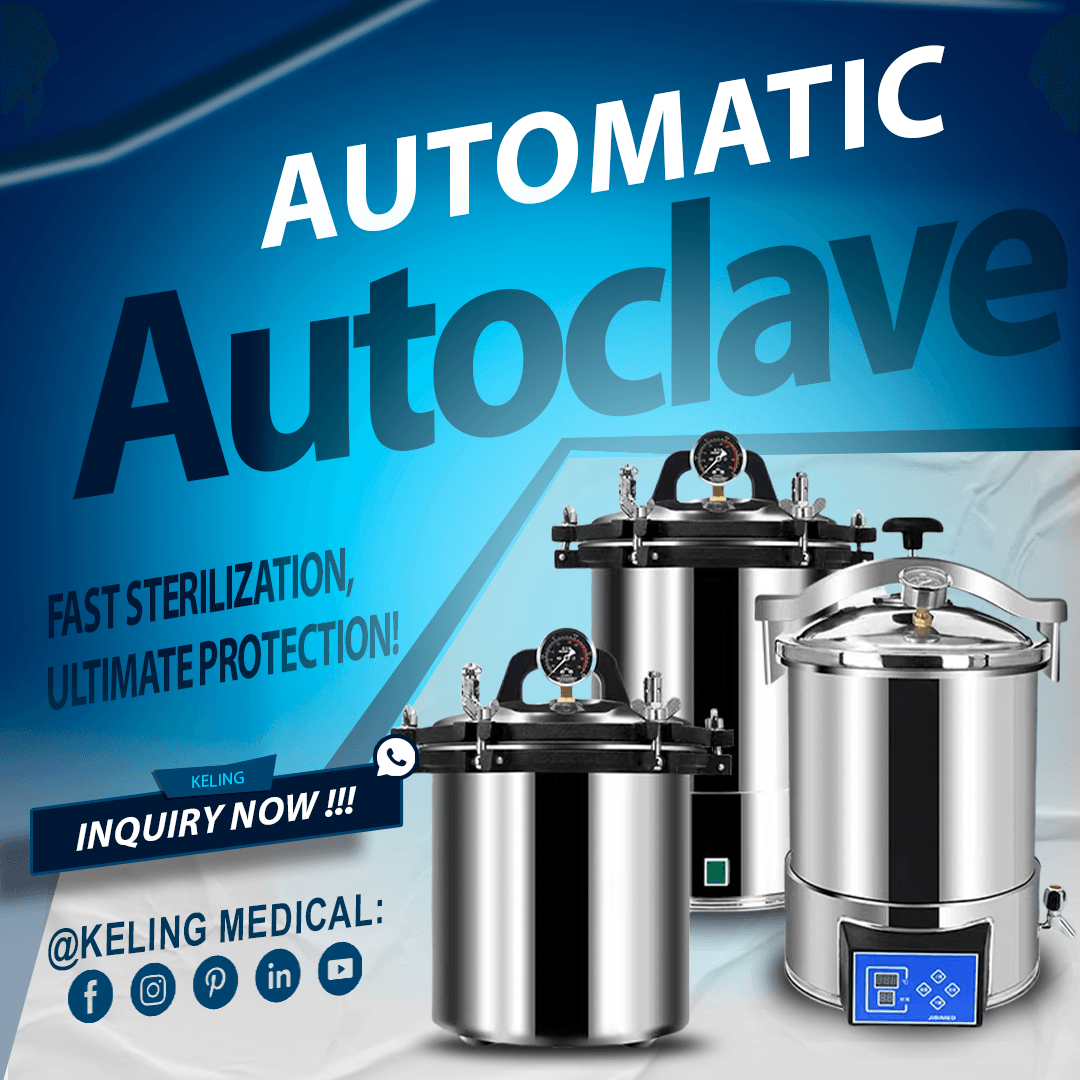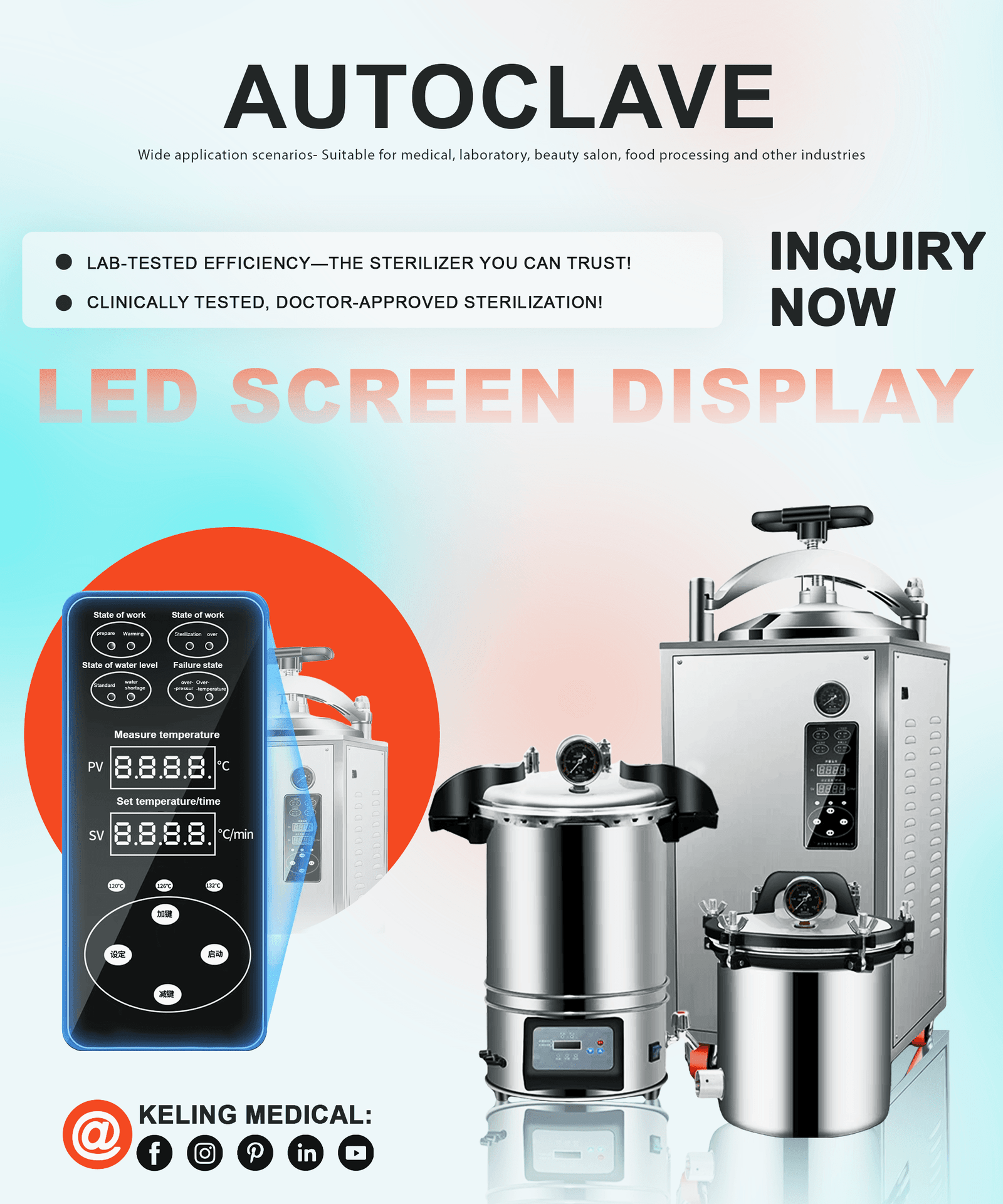
Medical professionals continue to rely on autoclaving as a dependable method to eradicate pathogens from surgical instruments. Medical supply professionals who distribute or procure high-quality autoclave instruments can establish themselves as essential partners to healthcare facilities. The article explores the importance of autoclave instruments and outlines their infection prevention function while examining best practices for acquiring and distributing these tools.
Autoclave instruments represent specialized medical devices constructed to endure high-pressure steam sterilization while maintaining structural integrity and operational performance. These instruments utilize premium stainless steel or heat-resistant materials which enable them to maintain their structure and resist corrosion despite frequent sterilization. The range of autoclave instruments consists of surgical scissors, forceps, clamps and retractors which serve as essential equipment during different medical operations.
Medical distributors who supply autoclave-compatible instruments go beyond basic needs to enable healthcare facilities with safe reusable tools that protect patient safety. Healthcare providers find these autoclave-resistant instruments appealing in the market because they combine reliability with cost-effectiveness.
Medical distributors recognize the essential role autoclave-compatible instruments play within healthcare facilities.
Autoclave instruments represent essential tools for meeting international healthcare standards to prevent hospital-acquired infections (HAIs). Global healthcare regulatory organizations mandate strict sterilization procedures which make autoclave instruments essential equipment in medical environments. Healthcare clients will develop greater trust with distributors who provide sterilization tools that meet industry standards.
Dental practices along with veterinary centers and large hospitals to small outpatient clinics require autoclave instruments throughout the healthcare industry. A strong tool inventory allows distributors to serve various clients which helps maintain their market competitiveness amidst changing conditions. Being versatile enables your business to grow its reach.
Autoclave instruments are built to withstand repeated sterilization so they avoid the waste and ongoing costs associated with disposable medical tools. Healthcare facilities benefit from substantial cost reductions when using reusable autoclave instruments which makes them appealing to those who manage supply acquisitions. Distributors can turn this advantage into a compelling argument throughout their client discussions.
Autoclaving functions as a sterilization method which eliminates bacteria, viruses, fungi and spores from medical instruments through the application of high-pressure steam. Medical tools undergo exposure to temperatures above 121°C (250°F) for set durations to achieve total decontamination. Suitable instruments for this method must consist of materials which resist damage under extreme sterilization conditions.
Autoclave instruments primarily consist of surgical-grade stainless steel because this material withstands heat and moisture well. Certain instruments integrate both advanced alloys and protective coatings to boost their durability. To safeguard instrument functionality and protect your reputation distributors should source tools crafted from premium materials that resist rusting and warping.
Medical facilities typically conduct several sterilization sessions each day to match their specific workflow requirements. Autoclave instruments with high quality construction maintain their precision and efficiency after numerous sterilization cycles numbering in the hundreds or thousands. Distributors need to choose products that demonstrate long-lasting performance to maintain customer satisfaction and drive repeat business.
Autoclave instruments primarily benefit medical facilities through their strong infection prevention capabilities. Distributors provide sterilizable instruments which play an essential role in protecting healthcare providers from cross-contamination and surgical site infections. Prioritizing safety improves your reputation with clients.
Healthcare settings require autoclave instruments universally and they maintain consistent demand. Distributors can safely invest in autoclave instruments because healthcare providers consistently require these tools despite market changes. Offering a wide variety of autoclave tools enables you to capture a bigger portion of the medical supply market.
The increasing focus on environmental sustainability makes reusable autoclave instruments a viable option that replaces single-use alternatives. Distributors can attract healthcare facilities looking to minimize medical waste and their environmental footprint by promoting the environmental benefits of these products.
Quality must be the primary consideration when selecting autoclave instruments for distribution. Choose products that meet international standards like ISO 13485 to ensure medical device quality management. Independent testing and certifications provide proof that instruments reach necessary safety and performance standards which protects your clients and maintains your business reputation.
Working with dependable manufacturers ensures the consistent delivery of high-quality instruments. Potential suppliers require evaluation from distributors based on their industry experience as well as production abilities and delivery schedules. Reliable supplier partnerships aid in preventing supply chain interruptions while building long-lasting trust with clients.
A broad range of instruments is needed by healthcare facilities to perform their essential functions. A full range of autoclave-compatible tools from surgical basics to specialized devices draws the attention of procurement professionals to your product inventory. Crafting custom instrument sets for particular medical procedures establishes your products as unique options in a crowded market.
The purchasing decisions of healthcare facilities depend on both the quality of products and their pricing. Distributors need to maintain equilibrium between setting competitive prices and achieving sustainable profit margins. A comprehensive market analysis of price patterns enables you to place your products strategically while maintaining profitable operations.
Distributors face operational challenges because medical device regulations differ between countries and regions. Maintaining updated knowledge about regulatory requirements helps ensure compliance and prevents possible legal or logistical problems. Working with regulatory consultants or specialists makes regulatory navigation simpler while reducing potential risks.
Autoclave instruments have durable construction but improper handling and sterilization procedures shorten their usable life. Educational materials and training sessions provided by distributors educate users on proper cleaning techniques and storage procedures for their tools. These efforts result in fewer returned products and stronger customer relationships.
Seasonal health crises along with facility expansions and healthcare budget schedules drive demand changes for autoclave instruments. Effective inventory management strategies enable distributors to avoid both excess stock and shortages so they can fulfill client needs without straining their resources.
Building trust with healthcare providers serves as the foundation for enduring success in medical distribution. High-quality product delivery combined with timely answers to inquiries and ongoing communication builds enduring business partnerships. When you comprehend what each client uniquely requires you can offer solutions tailored to their specific needs.
Modern digital business demands an online presence to successfully connect with procurement specialists across various markets. Adjust your website and content to search engine parameters to capture the attention of potential autoclave instrument buyers. Publishing educational articles and product showcases alongside case studies will establish your authority status within your industry.
Stand out from competitors by offering exceptional after-sales support including product query assistance and sterilization troubleshooting. Your service standards show dedication to client satisfaction which generates repeat business and positive word-of-mouth referrals.
Autoclave instruments play a key role in healthcare by providing essential infection control measures which ensure patient safety. Medical distributors, dealers and procurement specialists find these tools to be a sought-after product category that presents substantial business growth opportunities. Developing comprehensive knowledge about autoclave instruments including materials and sterilization processes as well as sourcing methods allows you to become a dependable healthcare provider partner.
Through commitments to quality control and regulatory standards while educating clients you can effectively manage distribution challenges of critical medical tools and fulfill the medical industry’s changing requirements. The healthcare industry’s focus on both safety and sustainability leads to increasing relevance for autoclave instruments which makes them a strategic inventory choice.
We are prepared to support you in expanding your product lineup with superior autoclave instruments and guiding you through sourcing and distribution queries. Reach out to us at [inquiry@shkeling.com](mailto: Please contact us at inquiry@shkeling.com or connect with us through WhatsApp at +8618221822482 and find additional information on our website at https://autoclaveequipment.com/. We specialize in helping medical distribution businesses achieve superior growth and success.
Medical tools called autoclave instruments can endure steam sterilization at high pressure and temperature. Autoclave instruments play a vital role in preserving sterility throughout healthcare environments while preventing infections and ensuring patient safety.
Autoclave instruments receive construction from surgical-grade stainless steel or alternative heat-resistant substances that prevent corrosion and damage through multiple sterilization cycles.
The frequency of sterilization for high-quality instruments ranges between hundreds to thousands of cycles based on their material quality and maintenance practices.
Distributors need to prioritize high-quality products that meet international standards and ensure supplier reliability while providing a wide variety of tools to meet different client requirements.
Distributors support healthcare facilities not only by supplying tools but also by offering guidance on proper sterilization techniques and maintenance to maintain instrument effectiveness and longevity.

Introduction Autoclave machines used in hospitals are one of the most important investments in healthcare infrastructure, serving as the first line of defense against healthcare-associated infections. Sophisticated sterilization equipment is

O processo de autoclavagem é uma prática de esterilização essencial utilizada em instalações médicas, laboratoriais e de investigação para proteger o material de vidro e os instrumentos através de uma esterilização eficaz. O vapor de alta pressão elimina os agentes patogénicos durante este

O processo de autoclavagem é uma prática de esterilização essencial utilizada em instalações médicas, laboratoriais e de investigação para proteger o material de vidro e os instrumentos através de uma esterilização eficaz. O vapor de alta pressão elimina os agentes patogénicos durante este

O processo de autoclavagem é uma prática de esterilização essencial utilizada em instalações médicas, laboratoriais e de investigação para proteger o material de vidro e os instrumentos através de uma esterilização eficaz. O vapor de alta pressão elimina os agentes patogénicos durante este

O processo de autoclavagem é uma prática de esterilização essencial utilizada em instalações médicas, laboratoriais e de investigação para proteger o material de vidro e os instrumentos através de uma esterilização eficaz. O vapor de alta pressão elimina os agentes patogénicos durante este
O processo de autoclavagem é uma prática de esterilização essencial utilizada em instalações médicas, laboratoriais e de investigação para proteger o material de vidro e os instrumentos através de uma esterilização eficaz. O vapor de alta pressão elimina os agentes patogénicos durante este